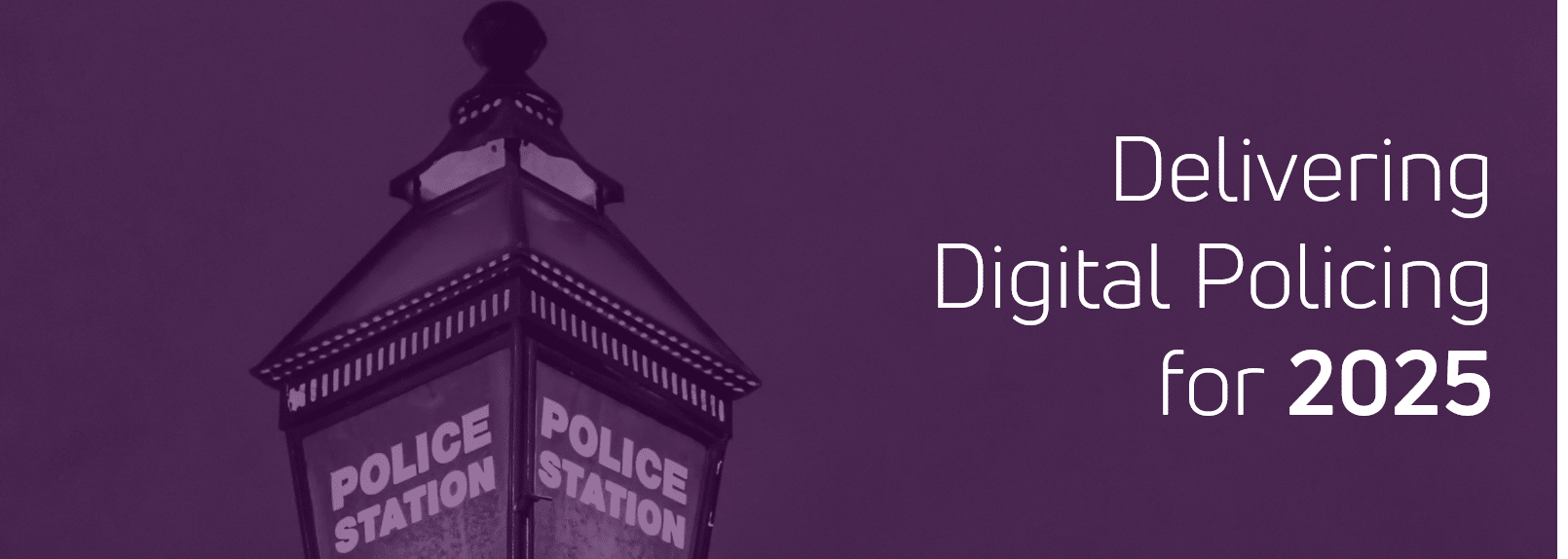In its ‘Police Vision 2025’, the National Police Chiefs’ Council called for “transformative change across the whole of policing”. It cited the need for increasingly joined up delivery and data sharing while recognising the challenges presented by a greater abundance of digital evidence and the need to ensure its long-term integrity from capture to presentation in court.

Against this backdrop of unprecedented change and with key national initiatives underway (National Enablement Programme, Emergency Service Network), force IT teams must continue to ensure the availability of the IT services that address the day to day demands of operational policing utilising often-ageing infrastructures and with limited budgetary and personnel resources.
Are forces coping?
In any high-pressured environment, retaining skilled and experienced technical staff is especially important. It is, however, particularly difficult to achieve in the public sector and police forces are no exception. This places additional strain on force IT teams being able to meet their own expectations with respect to providing a service that is fit for purpose for office and operational staff alike.
Skillsets of technical staff and many of the processes they employ have not always evolved at the same pace as technology and the demands of digital policing. The consequential lack of resources has also resulted in the widespread use of contract staff which presents the usual challenges of retaining knowledge and continuity through project/programme delivery.
For officers on patrol, not being able to resolve even a minor issue could impact on their ability to fulfil their role effectively and efficiently. The strong feeling of users was that a 24/7/365 police service needs 24/7/365 support – CoPaCC Police ICT User Perspectives Report, October 2018
Ageing infrastructures that were designed to address the demands of policing 5+ years ago, and implemented with similarly aged technology, are increasingly not fit for purpose in meeting the demands of Digital Policing.
“(We have) deployed several thousand BWV cameras, however in the recent past network capacity, video ingestion, storage and transmission has proved a troublesome issue.” – UK Police Force RFI, March 2019
Legislation and increased public expectation require a significantly increased focus to be placed on information management and compliance.
Humberside Police has been fined £130,000 by the Information Commissioner’s Office after disks containing a video interview of an alleged rape victim went missing – ICO Bulletin, April 2018
Potential impact on operational policing
Forces face increased risk of data loss, compliance breaches and even missed prosecutions as technical teams struggle to ensure that the existing infrastructure can safely and securely manage the volumes of data being consumed and stored.
The ability of information managers to derive business and operational intelligence from the force’s data assets can be compromised through a lack of understanding of data already held and exploding volumes of newly ingressed data.
Increasing data volumes may also compromise the ability of Information Managers to evidence compliance with business data management obligations and legislative requirements of GDPR, SAR and professional standards.
Building the foundations for transformation
In order to complete a successful transformation programme, forces need to ensure that operational efficiency is maximised, and that IT service delivery fully addresses the demands of BAU. Force technical teams need the skills and time to be able to align IT services provision with the evolving operational needs of their force.
Highly scalable and flexible blueprint architectures need to be identified and assessed against the actual and anticipated needs of the force and targeted at delivering measurable benefit in line with forces’ changing priorities and emerging requirements.
Forces understand that there will be complexity in transforming IT infrastructures such that they become an enabler to delivering the aspirations of Police Vision 2025. However, the exact nature and extent of change as well as the scale of investment needed for infrastructure transformation and modernising IT skills and processes is not always fully understood.
In the absence of a clarity of approach, and an understanding of budget requirements, there is a risk that change is deferred, and piecemeal or siloed approaches are adopted that tend to perpetuate the inflexibility and shortfalls in the inherent capability of the infrastructure.
CAE – supporting the journey to Digital Policing
The move to becoming Digitally Capable often requires not only changes in physical infrastructure, but also changes to operating process and sometimes operating structures. CAE is experienced in supporting organisations in their journey to delivering operational value from their Digital Policing strategy.
CAE’s approach to working with our clients is to establish a baseline understanding of the current state (technology, people and processes) and then work with force stakeholders in a structured manner that aims to rapidly realise value and ultimately deliver the digital backbone and business processes that will best support organisational effectiveness and operational agility in the future.
For over-stretched force IT teams, many of whom don’t have the time to take a step back and consider how best to approach Digital Transformation, CAE can offer a low/no-cost initial engagement that will target some immediate wins and deliver prioritised recommendations, as well as a roadmap for the medium and long-term transformation strategy.


